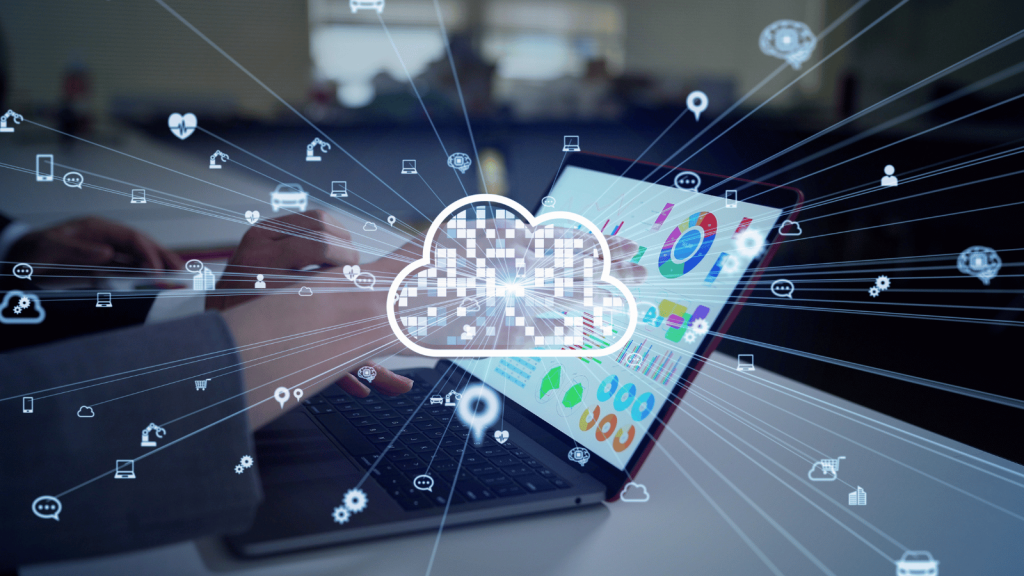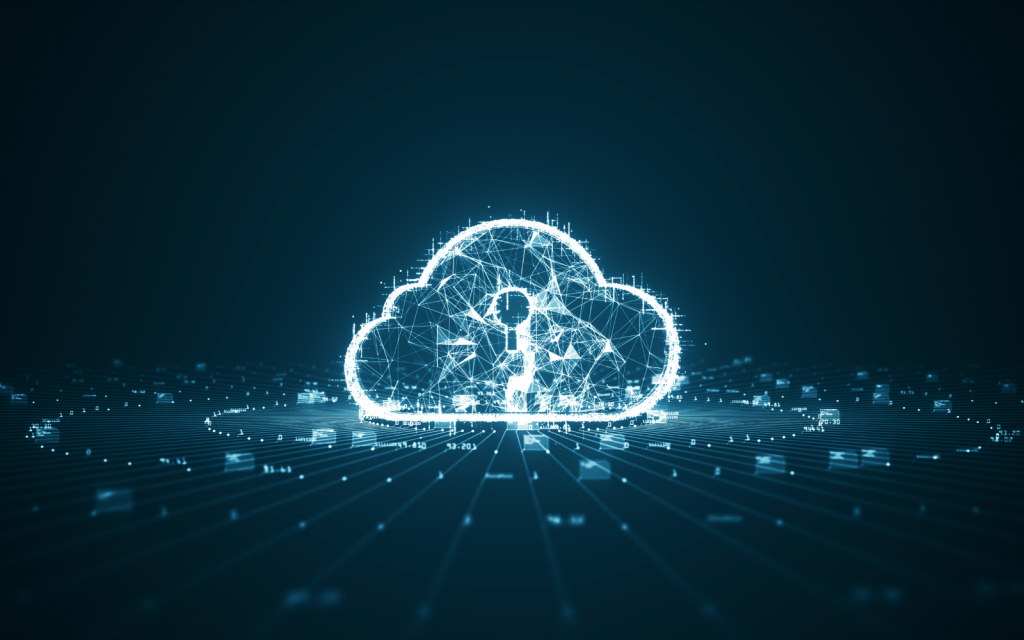When it comes to accounting software, the choice businesses typically have is between software that’s based in the cloud, and software that’s installed locally on a desktop computer.
While desktop software has been widely used in the past, there’s a growing trend of companies switching to cloud-based accounting systems. This is driven by the biggest perceived benefit of cloud accounting: that all you need is a PC connected to the internet and a browser, and you can use it from anywhere.
And from an IT perspective, accounting software that’s delivered from the cloud is also much easier to manage than desktop software. It’s also really handy to have the option to scale it up and down as the business’s needs fluctuate, making it a great choice for businesses as market conditions change.
Cloud-based accounting software
 Cloud accounting software, which is hosted inside a brand-name datacentre (Azure/AWS/Google etc.), allows businesses to access and manage their accounts and financial data over the internet without needing to install software on their computers. This is a huge win for small businesses that don’t have the resources to effectively manage desktop software.
Cloud accounting software, which is hosted inside a brand-name datacentre (Azure/AWS/Google etc.), allows businesses to access and manage their accounts and financial data over the internet without needing to install software on their computers. This is a huge win for small businesses that don’t have the resources to effectively manage desktop software.
And then there are the costs: companies pay a monthly subscription to use cloud accounting software and get the benefit of anywhere-anytime access on various devices, automatic data backups that happen without the need for human intervention, and (depending on the vendor) easy integration with other business applications. This provides a real-time view of business operations, which can help businesses make the right decisions at exactly the right time, leading to more wins and excellent business outcomes over time.
Desktop accounting software, on the other hand, requires that the accounting program is directly installed onto a computer. This also requires the upfront purchase of a software license and, sometimes, payment for version updates. All financial data is stored locally on the PC, and management can only access the software on the computer where it’s installed.
Frankly, all of this is a giant pain to manage.
Why is that? It’s because going the desktop route is far less flexible as it doesn’t allow financial information to be accessed remotely or while traveling, and requires someone to do manual, on-site data backups. Desktop systems are also limited to using the installed version of the software, which isn’t necessarily up to date, and potentially doesn’t offer all of the features accountants need to do their jobs to the best of their ability.
When we compare cloud and desktop accounting software, there are several major differences to keep in mind.
Accessibility
Being able to access financial data from anywhere using any internet-connected device is in stark contrast to desktop accounting software, where access is restricted to the computer on which it’s installed.
This difference is a big one for businesses with workers who aren’t always in the office, as cloud accounting offers greater flexibility and mobility by enabling money management when finance people are on the go.
Using accounting software installed on a desktop PC, however, means it can only be accessed when people are in the office. Unless someone installs remote access software like TeamViewer on that PC, but that in itself is an inelegant and less-secure solution and is thus not recommended.
Installation and updates
Cloud accounting systems offer a huge advantage when it comes to updates. In cloud systems, updates are automatic and seamless as they happen invisibly to the user, ensuring that the version you’re using is always the latest one, without you needing to do anything to make it so.
Even when completely new software is released that necessitates a version update, you’ll get that new version for no extra money as it’s already paid for by your subscription fees.
In contrast, desktop systems require manual installation of updates and fixes, which can be time-consuming and may lead to delayed adoption of new features and security patches. This contrast significantly affects the efficiency and ease of maintaining the accounting software. Plus, a new version of that software means you’ll have to buy it.
Security and backups
Cloud accounting systems provide robust security and automated backups. The security is managed by vendors who offer enterprise-grade protection and access controls. These systems are always doing data backups, which keeps your data super safe. In contrast, desktop systems require you to manually handle both security and backups. This process is far more labour-intensive and poses a higher risk of data loss or security breaches if not managed properly. And it’s easy to not manage it properly.
Financial reporting and compliance
Cloud-based accounting systems generally offer more extensive and customisable reporting capabilities compared to desktop systems. They support real-time, customised reporting to meet specific business needs and comply with relevant accounting standards and regulations. Desktop systems, however, typically have a limited range of financial reports with little customisation.
And while they can export data to spreadsheets for custom reporting, this can be difficult to do and is prone to human error. Cloud systems also provide better support for compliance with complex regulatory requirements and accounting standards as they are kept as up-to-date as possible, and are thus compliant very shortly after new legislation has passed.
Think about switching
We hope we’ve convinced you to at least think about switching to cloud accounting software. Yes, it’s relatively new and new can be scary, but it really does solve a lot of the problems of running accounting software locally on a PC inside your business.
To recap: it’s always up to date, it’s always compliant with the latest legislation, reporting is a breeze, and it’s always available so long as you have a device and an internet connection to access it. You don’t need to manage licenses manually, you don’t need someone to look after that one specific PC that the software is on, and you don’t have to worry about backing anything up yourself.
If you haven’t switched to a cloud-based accounting system yet, please think seriously about it – we’re pretty sure you’ll be happy you made the switch. Talk to your current accounting software provider, they may already have something for you.



